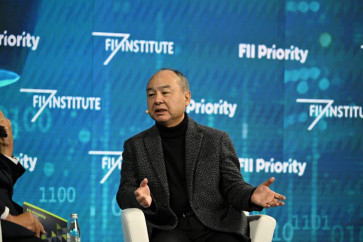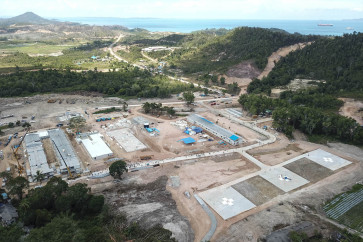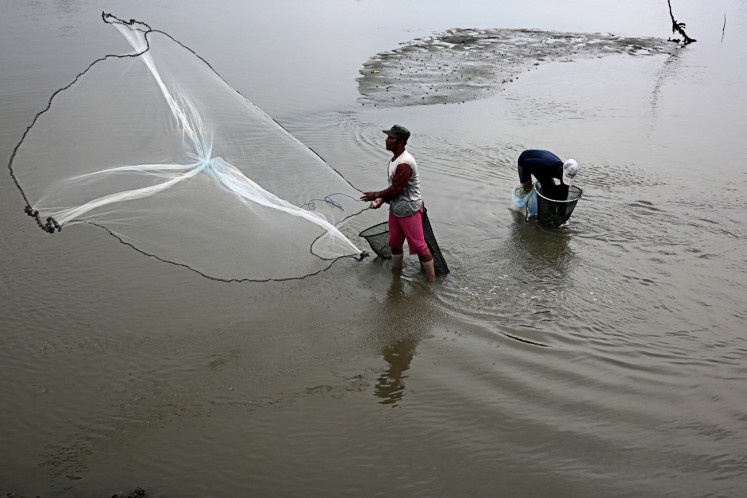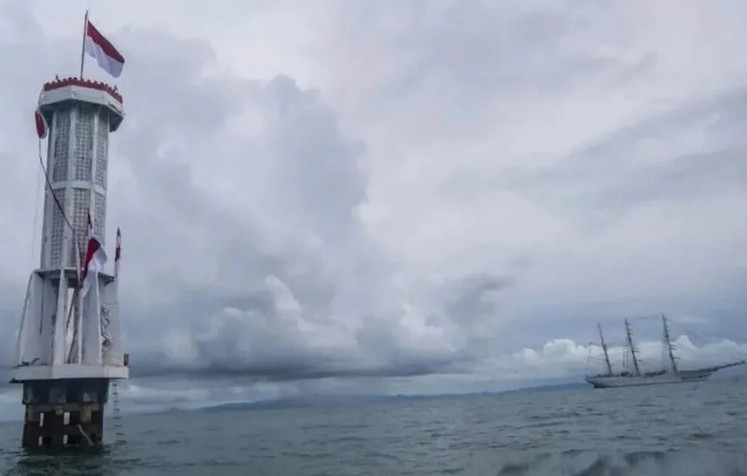Popular Reads
Top Results
Can't find what you're looking for?
View all search resultsPopular Reads
Top Results
Can't find what you're looking for?
View all search resultsTaiwan's Tsai says dialogue with China will continue
Change text size
Gift Premium Articles
to Anyone
T
aiwan will continue to look for "other options" to maintain dialogue with China, President Tsai Ing-wen said, after Beijing halted a cross-strait communication mechanism that facilitated regular contact between the two sides.
Her comments came on the back of Beijing's latest move to put pressure on Taipei for not acknowledging the 1992 Consensus - a tacit agreement between the two sides that there is one China, with each side having its own interpretation of what "one China" means.
"We will continue the dialogue with mainland China, as even though... official negotiation channels have been temporarily interrupted, there still exist other options for communication and dialogue," Tsai said in Paraguay, the last stop of a nine-day visit to Latin America.
China's Taiwan Affairs Office (TAO) confirmed the communication mechanism had been halted last Saturday, a day after Tsai left on her first overseas trip as leader. It blamed the suspension on Tsai for not accepting the 1992 Consensus. Beijing insists that it must be the basis for cross-strait exchanges, which picked up during Tsai's Kuomintang (KMT) pre- decessor Ma Ying-jeou's eight years in office. These included the inking of various cooperation agreements and the setting up of a cross-strait hotline to deal with emergencies.
But ties chilled after Tsai and her pro-independence Democratic Progressive Party defeated the KMT in January's presidential and legislative elections.
In her May 20 inauguration speech, Tsai did not mention the 1992 Consensus, saying only that there was "a joint acknowledgement of setting aside differences to seek common ground" during talks between the two sides that year.
Beijing's response was that exchanges between their official and semi-official organizations could continue only with affirmation of the "one China" principle enshrined in the Consensus.
China also appeared to have been punishing Taiwan in other ways.
Since April, when Kenya deported 37 Taiwanese to China for alleged telecoms fraud targeting mainland Chinese, there have been several other deportations, the most recent one from Cambodia.
The number of mainland Chinese tourists visiting Taiwan has also fallen in recent months.
Upping the ante on Wednesday, TAO spokesman An Fengshan said Taiwan should be responsible for the suspension of official contact between the two sides.
He was quoted by Xinhua news agency as saying peaceful development of cross-strait ties since 2008 "did not come out of the blue".
"The mainland has not changed in its stance... It was the Taiwan side which changed the situation."
In response, Taiwan's Mainland Affairs Council (MAC), which is in charge of cross-strait ties, said that both sides have the "common aim and responsibility" to maintain peaceful and stable ties.
"Our doors for communication and negotiation will always be open wide," said an MAC spokesman.
Tamkang University analyst Chen I-hsin does not think that Tsai and Taiwan have much room for negotiation, and must address the 1992 Consensus.
"She [Tsai] has to come out to clarify her stance sooner rather than later," said Professor Chen.
"The ball is in her court."










